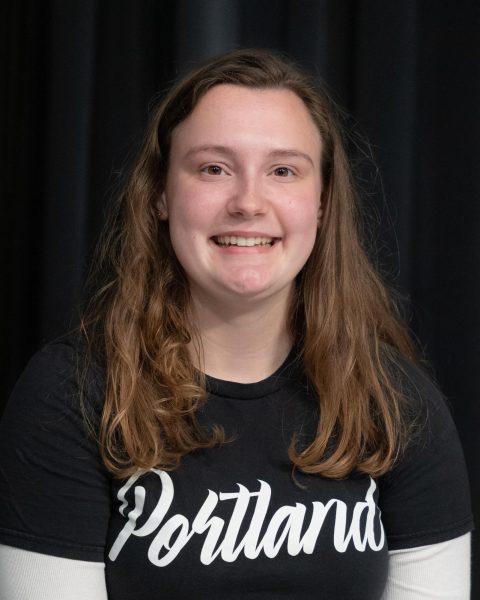With concerns over student safety and risks surrounding the spread of COVID-19, the Service Learning Program has altered the way Marquette conducts service learning.
“We’ve had to do a lot of pivoting because of COVID. We’ve got a lot more virtual placements than we’ve ever had before,” Kim Bohat, director of service learning, said.
At Marquette, service learning is used in a variety of different classes. The Marquette website describes service learning as “student academic learning through meaningful service experiences, which encourage and enable Marquette’s faculty and students to positively impact the community.”
Different classes that use service learning range from Sales and Marketing to Veterans’ Health and Culture. All of these classes, as well as the service learning program as a whole, have adapted to new ways of doing things.
“We have seven reflection sessions that we typically offer to anybody doing service learning,” Bohat said. “We usually meet in the union, do small group conversations, so we’ve moved all those to Zoom and we’re doing virtual breakout sessions and things like that.”
Bohat also teaches practical cases in medicine. They’ve had to come up with a completely new approach to service learning as well.
“Those students are typically at places like free clinics, working at the hospital,” Bohat said. “Medical settings don’t necessarily need or want extra bodies hanging out so it’s been kind of hard to find placements for those students. Instead we partnered with Milwaukee Film and participated in the Minority Health Film Festival this fall.”
Practical Cases in Medicine is not the only class that has changed due to COVID-19. Veterans’ Health and Culture has also changed. Normally those students are out in the community working with veterans at different organizations throughout the community. Now, students have been talking to veterans over the phone or via other virtual options such as FaceTime or Skype.
“For service learning the value in it is that interaction with another person in that physical environment,” Benjamin Theilen , said. “So I think when you move it to Facetime, or Skype format or telephone format, you might lose a little bit of what it’s like to actually be in that physical environment.”
Despite the switch to a virtual format, Theilen still believes that service learning has still been productive.
“So far from what I’ve heard from the students and the participating places it’s been a great experience to still have the opportunity to talk and see each other virtually and spend the time allowing veterans to share their stories and experiences,” Theilen said.
In addition to moving towards more virtual formats, there have also been a few other changes within service learning. Many service learning classes have a required number of service hours. Due to COVID-19 there aren’t as many service opportunities for certain classes. With an effort to keep both community partners and students safe there have been changes made to certain policies.
“We decreased the amount of hours that we normally would require,” Abiola Keller, a professor of nursing, said. “A key part of service learning is developing and maintaining relationships with the community, and to do that you need to spend time.”
Keller is a course lead for culture and health.
The Office of Service Learning also created a program to help K-12 students in Milwaukee Public Schools transition to their schools’ online formats.
“We started with community service programs over in Student Affairs and with the Burke Scholarship Program in Student Development and we started an MU tutoring hub,” Bohat said. “It’s our way of reaching out to partners who are struggling to reach their students. So we’re tutoring at a couple of different schools and just kind of offering more support than we normally would.”
Even with the new changes this semester, some faculty still feel the program has been successful.
“The idea of service learning and giving students the opportunities to have encounters that they normally wouldn’t have, I think it’s absolutely been successful. I think in terms of service learning and the way we’ve traditionally done it, it’s a work in progress,” Keller said.
Theilen had similar feelings about how this semester in service learning has gone with the new changes.
“I can’t say enough great things about the service learning program and their office at Marquette,” Theilen said. “They’ve got phenomenal staff that help the students and the faculty and they really do a phenomenal job.”
This story was written by Megan Woolard. She can be reached at megan.woolard@marquette.edu.






